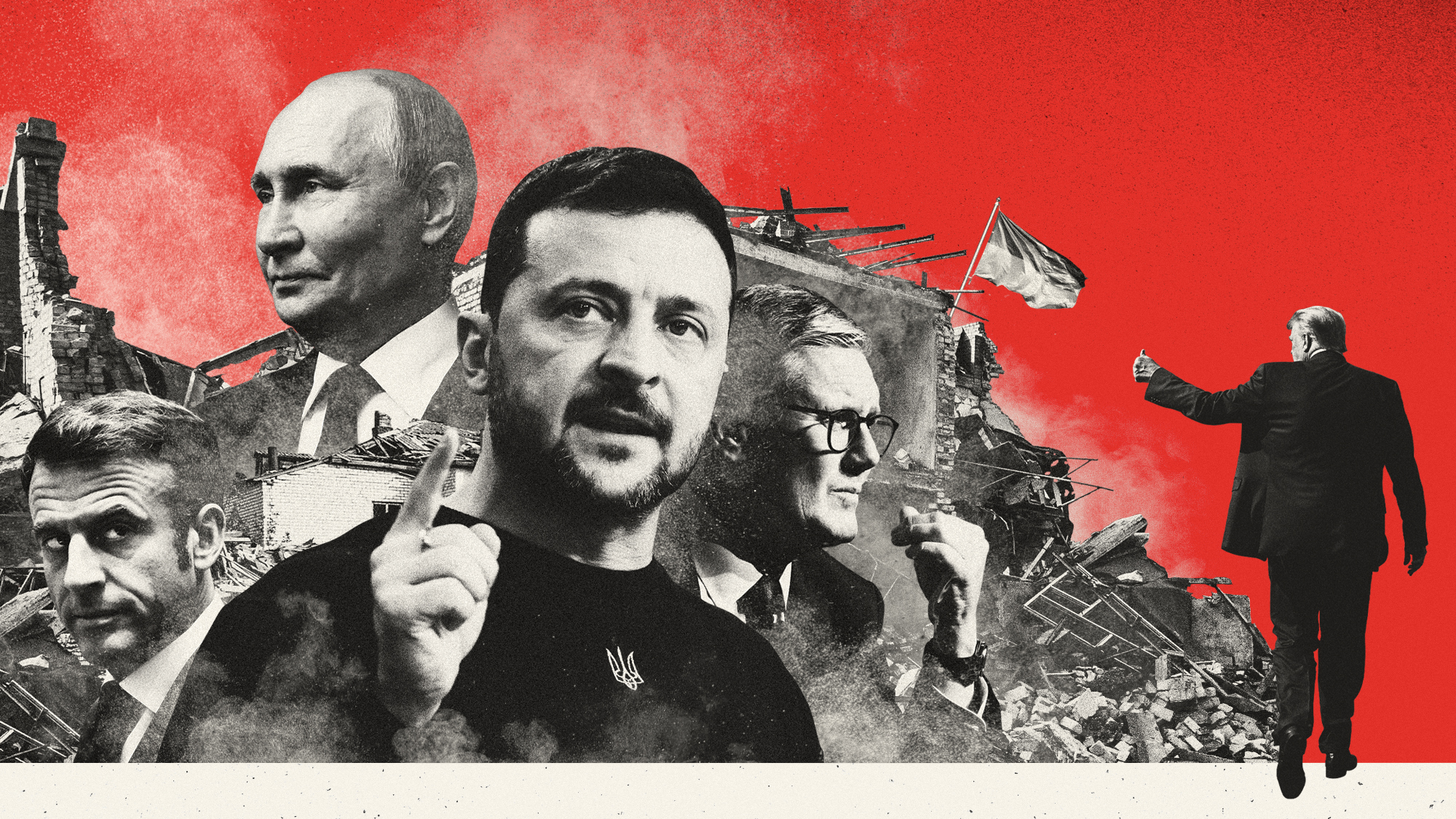Can Europe pick up the slack in Ukraine?
Trump's election raises questions about what's next in the war


A free daily email with the biggest news stories of the day – and the best features from TheWeek.com
You are now subscribed
Your newsletter sign-up was successful
The election of Donald Trump could mean the end of U.S. support for Ukraine's defense against Russia's invasion. Now European leaders are trying to figure out what's next.
U.K. Prime Minister Keir Starmer and French President Emmanuel Macron are working to present a "united front on Ukraine" ahead of Trump's inauguration, said the Financial Times. During a meeting in Paris, the two leaders pledged "unwavering" support for Ukrainian President Volodymyr Zelenskyy and his country's efforts to resist Russian aggression. Downing Street released a statement saying the aim is to "put Ukraine in the strongest possible position going into the winter."
Some European countries say they are prepared to "up their support for Ukraine if needed," said The Wall Street Journal. "We support Ukraine as long and as much is needed," Finnish Prime Minister Petteri Orpo said at a dinner for European leaders. Others, like Italian leader Giorgia Meloni, have suggested it would be tough to ask "struggling voters to dig deeper for Kyiv" if the U.S. ends its support for Ukraine. And there are other limits to Europe's ability to bolster Kyiv: The continent's "weapons stocks are dwindling and its defense industry is less robust" than America's.
The Week
Escape your echo chamber. Get the facts behind the news, plus analysis from multiple perspectives.

Sign up for The Week's Free Newsletters
From our morning news briefing to a weekly Good News Newsletter, get the best of The Week delivered directly to your inbox.
From our morning news briefing to a weekly Good News Newsletter, get the best of The Week delivered directly to your inbox.
What did the commentators say?
"Helping Ukraine is Europe's job now," said Phillips Payson O'Brien at The Atlantic. Trump has "clearly indicated" he wants America out of the war, and quickly. That's why European leaders should "accept this reality and make their own plans" both to help Ukraine and protect their own security. It's possible that Trump would allow Europe to purchase American weapons to help Ukraine. It's a momentous break, O'Brien said. "The United States will likely stop leading the global opposition to Russian aggression." Building Europe's defensive capacity will be hard, "but it is essential."
Europeans must take Ukraine policy "into their own hands," Sophia Besch and Liana Fix said at the Carnegie Endowment for Peace. One way to do that is to offer a deal to Trump, in which Europe will take over financial support for Ukraine if the U.S. maintains its military support. That might appeal to "Trump's shareholder logic," while letting Europe "secure a seat at the table in any potential Ukraine peace negotiations."
Europe probably can't "fill the void" left by a possible U.S. withdrawal of support for Ukraine, Luis Simón and Lotje Boswinkel said at War on the Rocks. However, European leaders can have some say "over the actual landing zone" of a Trump-led peace proposal for Ukraine and Russia. That should be the goal now that a peace-for-territories deal "seems all but inevitable."
What next?
German Chancellor Olaf Scholz spoke with Russian leader Vladimir Putin on Friday to discuss "prospects for bringing an end to the war in Ukraine," said The New York Times. It was apparently the first contact between Putin and the leader of a "large Western country" since 2022. After Trump's election, such calls will probably increase in frequency, said the Times: Scholz and Putin "vowed to stay in touch."
A free daily email with the biggest news stories of the day – and the best features from TheWeek.com
Joel Mathis is a writer with 30 years of newspaper and online journalism experience. His work also regularly appears in National Geographic and The Kansas City Star. His awards include best online commentary at the Online News Association and (twice) at the City and Regional Magazine Association.
